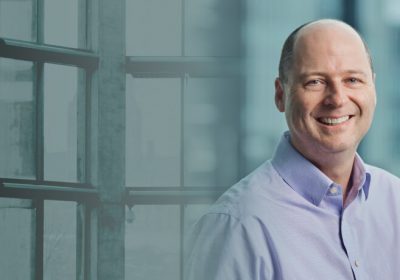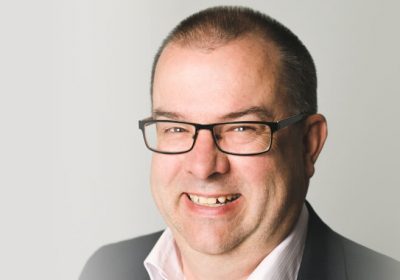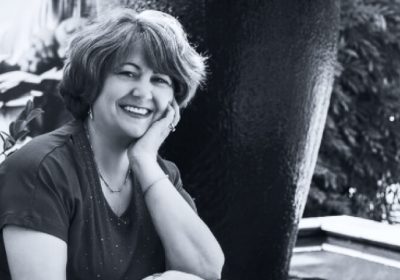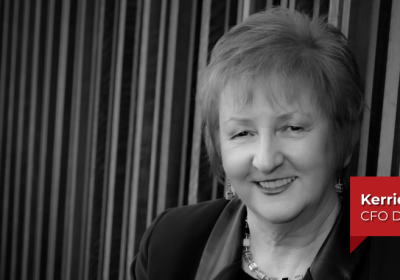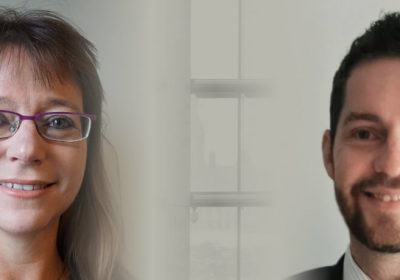
- Author: Jessica Mudditt
- Posted: November 10, 2022
Life in the fast lane
Erica Newland is a truly global finance professional and became the CFO of tech scale-up Baraja last year. She explains to CFO Magazine’s Jessica Mudditt, why she has never regretted the professional risks she has taken in her career.
Erica Newland spent 25 years working for large global companies, including 17 years with Intel. The seasoned finance executive could have spent her entire career working for some of the world’s biggest names, but she chose to take up a role at start-up Baraja, whose Sydney headquarters is on the other side of the world from her home in California.
Part of the reason the role appealed was because the cutting-edge technology of autonomous driving excited her. Baraja’s speed of growth is “exponential” and it has plans to become a public company. In 2021, a fundraising round valued Baraja in the hundreds of millions.
Its technology is already guiding automated vehicles in mines in Western Australia and Queensland. It has a global supply chain and uses LiDAR, which is essentially a laser that bounces off objects to determine a safe distance, such as a child crossing a road. When advanced LiDAR systems are used in cars, the tragedy of road deaths could become a thing of the past. Baraja’s LiDAR is already used in commercial heavy industry vehicles, such as those used by Hitachi Construction Machinery.
Forever a globetrotter
Newland spends half her year travelling to Sydney and when she is in the United States, she works from noon until 10pm from Sunday through to Friday so that she is available during Australian work hours. She has chosen to remain in the United States so that she can remain within visiting distance of her young adult children.
Newland knew that many aspects of the role would challenge her – this was part of its appeal.
“I wanted an opportunity to push myself, and to leverage my skills and experience in a start-up environment,” she says.
“Large companies have so much money that they can spend it and they don’t mind. At Intel there was so much money being generated that it almost lost some of its power. At a start-up you do not have that luxury. It means that you’ve got to be lean and operating on all cylinders.”
Erica Newland, CFO | Baraja
Even before her career began, Newland was seeking out challenges by studying in Chile and Germany. In 2007, she and her family moved to Russia.
She spent two years as Intel’s corporate finance manager and led a 26-person team to drive the US GAAP and statutory accounting operations and controls for Russia, Ukraine, and Kazakhstan representative offices. Intel’s combined annual revenue there was approximately USD$1 billion.
Along with needing to learn Russian to get by on a day-to-day basis, it was a particularly challenging time to be in Moscow.
“The stock market had crashed and there was a housing correction, so there was a period when it wasn’t possible to get cash out of ATMs. The whole banking industry in Russia shut down.”
There was also the mafia to steer clear of.
“The mafia was still very strong, so you had to be careful about what cars were in the parking lot. Reporters were getting kidnapped on the streets. There were armed guards standing at the entrance of grocery stores.”
Newland subsequently spent six years in Beijing as the Head of Strategic Finance for Intel in China, which at the time had a $10 billion dollar consumption market.
“It was a huge market huge opportunity and it was a high profile position, so I was nervous about it beforehand. But I took the risk and it has opened up so many doors. In fact, I don’t know if I would be here now if I hadn’t done it.”
Newland thrives when presented with complexity, which is why she has specifically chosen global roles. She also has a deeply global perspective.
“When we’re thinking about solving problems, we should be global citizens. This is very important to me, and I wanted my children to see that too. When we solve a problem, it shouldn’t just be for our small piece of Earth, but for the broader planet as well.”
Firing on all cylinders
With a year now behind her at Baraja, Newland has discerned some unique aspects about being a CFO at a start-up.
“When you’re in a large company, there are specialists with specific skill sets,” she says. In finance, you have one person who’s just doing tax: they have deep expertise and that’s great. A startup isn’t large enough for one person to be solely working on one thing.”
All of Baraja’s non-manufacturing operations, such as IT (and of course, finance) report to Newland, and one of her long-term goals is to build up specialist skillsets among her team members.
Another difference is that every dollar is spent carefully at a scale-up. She is conscious of having finite resources at her disposal – but once again, it is a challenge she enjoys.
“Large companies have so much money that they can spend it and they don’t mind. At Intel there was so much money being generated that it almost lost some of its power. At a startup you do not have that luxury. It means that you’ve got to be lean and operating on all cylinders.”
Newland must weigh up whether a sum of money should be invested in one part of the business over another, and often there are no easy answers.
“You have to have clarity on the value that’s being generated from that dollar you’re spending. Where is the best place to put it? It is a challenge.”
Newland loves the fast-paced environment at Baraja, and she feels that she can make a bigger impact and drive results in a more meaningful way.
“When you’re in a larger company, decision making is typically slower and more convoluted,” she explains.
“For example, one year a team might be rewarded for making an incremental change, and then three years later they are rewarded for reversing that change. Sometimes there are few opportunities to really drive impact, so people are fighting amongst themselves to be the ones to make it. At a start-up, there is no lack of opportunities.”



